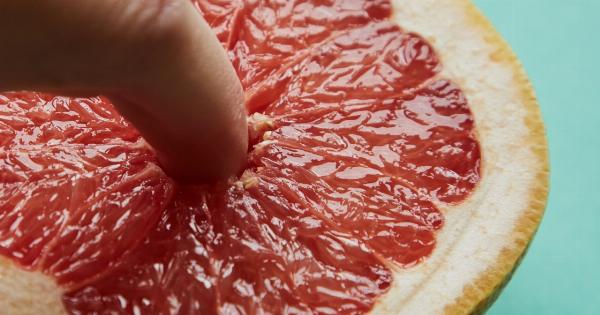Female orgasm is a complex topic and there are several factors, both physical and psychological, that influence the ability to experience orgasm.
While physical factors like hormonal imbalances, medications, and diseases can have a significant effect on orgasm, psychological factors can also contribute to roadblocks to achieving orgasm. In this article, we will explore some of the common psychological reasons why women experience difficulties in achieving orgasm.
Cultural Conditioning
Cultural conditioning is a significant factor that can influence an individual’s beliefs and attitudes towards sex.
Often, women are given messages that sex and pleasure are taboo, and that they should not be actively seeking out their own sexual pleasure. This can lead to feelings of shame and guilt surrounding sexual desire and can create psychological roadblocks to achieving orgasm.
Additionally, cultural attitudes towards women’s sexuality can have an impact. Women may feel pressure to appear “pure” or “innocent,” which can create anxiety about embracing their sexuality and experiencing pleasure.
Past Trauma
Past trauma, such as sexual abuse or assault, can have long-lasting effects on an individual’s ability to experience pleasure and intimacy.
Survivors of sexual violence may experience difficulties with trusting partners and may struggle with feelings of shame or guilt associated with sexual desire. These feelings can create significant psychological roadblocks to achieving orgasm.
Body Image Issues
Body image issues, such as feeling self-conscious about one’s appearance, can significantly impact an individual’s ability to experience pleasure.
Women who feel uncomfortable with their body or have negative perceptions of their physical appearance may feel anxious or self-conscious during sexual activity. This can make it difficult to fully relax and experience the sensations necessary to achieve orgasm.
Stress and Anxiety
Stress and anxiety can also be significant psychological barriers to achieving orgasm.
Women who are feeling stressed or anxious may have trouble focusing on sexual activity, which can prevent them from fully connecting with their body and experiencing pleasure. Additionally, anxiety can create physical tension in the body, making it difficult to relax and reach orgasm.
Lack of Emotional Connection
For many women, emotional intimacy and connection are essential elements of sexual pleasure and orgasm. Women who do not feel emotionally connected to their partner may have difficulty achieving orgasm, even if physical stimulation is present.
Therefore, it is essential to establish emotional intimacy and trust with a partner before engaging in sexual activity to achieve the desired result.
Performance Pressure
Performance pressure is another common psychological roadblock to achieving orgasm. Women who feel pressure to orgasm quickly or who feel that their partner is expecting them to achieve orgasm may find it difficult to let go and fully relax.
This can make it challenging for them to achieve orgasm and can create tension and frustration in the relationship.
Communication Issues
Communication is key to achieving sexual pleasure and orgasm. Women who have difficulty communicating their desires or who feel uncomfortable discussing sexual activity with their partner may struggle to achieve orgasm.
Open and honest communication is necessary to understand each other’s needs and preferences, making sexual activity pleasurable for both partners.
Monotony and Boredom
Sexual activity can be monotonous and repetitive over time, making it difficult for women to achieve orgasm.
Incorporating new and exciting elements into sexual activity, such as trying new positions or incorporating sex toys, can help create excitement and make it easier to achieve orgasm. Over time, this will emerge as a pleasing experience for both partners, leading to increased satisfaction and pleasure.
Self-Doubt and Self-Criticism
Women who are overly self-critical or who have low self-esteem may struggle with sexual pleasure and orgasm.
Women who doubt their own self-worth may feel undeserving of sexual pleasure, while those who criticize themselves may find it difficult to fully relax and enjoy sexual activity. Developing a positive attitude and learning to be comfortable in one’s own skin is vital to achieving sexual pleasure and orgasm.
Conclusion
Female orgasm is a complex and multi-faceted topic, with physical and psychological factors influencing its ability.
This article highlights some common psychological barriers to achieving orgasm, including cultural conditioning, past trauma, body image issues, stress, lack of emotional connection, performance pressure, communication issues, monotony, and boredom, self-doubt, and self-criticism. Being aware of these factors and taking steps to address them can help women achieve greater sexual pleasure and orgasmic experiences.































